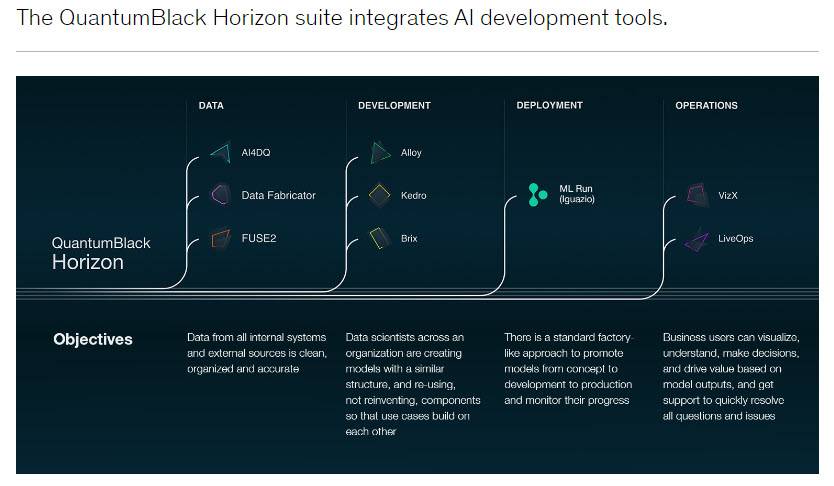Like the first dotcom boom of the late 1990s and the crypto/blockchain hype of the 2010s, the current AI revolution is being seen as an opportunity by consultants to extend their offerings and create new practices.
So just what are some of the big consulting firms doing with AI?
Accenture
Accenture is certainly doubling down on AI with the recent announcement it is investing $3bn over the next 3 years to double its Data and AI practice to 80,000 employees despite shedding 19,000 jobs earlier in the year.
Julia Sweet, Accenture’s chair and CEO announced,
“There is unprecedented interest in all areas of AI, and the substantial investment we are making in our Data & AI practice will help our clients move from interest to action to value, and in a responsible way with clear business cases. Our clients have complex environments, and at a time when the technology is changing rapidly, our deep understanding of ecosystem solutions allows us to help them navigate quickly and cost effectively to make smart decisions.”
The company claims its expertise in AI extends to over 1,450 patents and hundreds of client solutions at scale.
Current AI (Accenture calls them Applied Intelligence) vacancies listed on the Accenture website include Solution Architects, Consulting Analysts and Software Engineers.
How many of the 80,000 AI jobs will be from new hires or re-trained current employees is unclear.
McKinsey
Earlier in June, McKinsey released a bullish report on the economic potential of generative AI that it called “The next productivity frontier”. The report’s authors claim AI could add the equivalent of between $2.6tn and $4.6tn annually to the global economy. 75% of this value would be spread across 4 main areas: customer operations, marketing and sales, software engineering and R&D.
In an ironic twist, McKinsey argue that the biggest losers of this AI book will be knowledge workers. How far that might extend to the consulting profession will be interesting to see.
Also this month, the company claimed at a media event that more than 30,000 of its employees across 67 countries were using generative AI tools in a major way with almost 50% of their workforce using ChatGPT and similar tools. Perhaps reassuringly for the company’s clients, Ben Ellencweig, senior partner of the firm’s AI consulting division, pointed out that confidential information is not uploaded to any GenAI services. Details of exactly how GenAI tools were being used was not discussed by Ellencweig but it seems quite a bit of activity is experimental and taking place in “sandboxes”.
Also in June, McKinsey announced the launch of QuantumBlack Horizon, a set of AI development tools. Developed by QuatumBlack Labs the company’s AI and machine learning hub, the tools have been designed to help clients get real business value from AI. QuantumBlack Labs employs more than 250 technologists briefed with driving AI innovation for clients along with the firm’s 1,300 data scientists from offices around the world.
Emphasizing McKinsey’s focus on client value, Matt Fitzpatrick, senior partner and global leader of QuantumBlack Labs, stated,
“We see a lot of technology organizations focused on engineering metrics as the main KPI, like number of initiatives launched, data moved into a warehouse, or predicted improvement in a model, but the north star for all our AI initiatives should be field performance. We believe that live test-and-learn cycles help organizations consistently reach the next horizon of machine learning—and are more meaningful than building a perfect AI model during the development phase.”
EY
Not to be left out, EY has also been developing AI solutions both for its own internal use and for clients. In March, the company announced they had created a chatbot to answer employee questions about their pay and associated issues.
EY global chairman and CEO, Carmine Di Sibio said the chatbot was answering 500 questions a day and learning as it did so. It is currently being tested by EY clients in the airline, tech, logistics and pharmaceutical sectors. If the tests go to plan the company aims to launch the chatbot via its mobile app in the autumn of this year.
Late last year, EY announced an alliance with Databricks to help clients get more value from their data, analytics and AI.
Bain
Sticking with alliances, Bain announced in February it was partnering with OpenAI to add value to its client offerings.
Manny Maceda Bain’s Worldwide Managing Partner made the case for the partnerships,
“AI has reached an inflection point and we foresee a huge wave of change and innovation for our clients across industries. By collaborating with OpenAI, we’re delighted to have unmatched access to state-of-the-art foundation AI models, so that we can create tailored digital solutions for our clients and help them realise business value.”
AI Hype or Real Innovation?
While corporate announcements of new investments and partnerships are often over-hyped in terms of their actual significance for the businesses concerned, it seems there is something to many of these developments. AI has reached an inflection point in terms of its capabilities and the real impact it can have on business processes, improving customer service and creating new products. With their client relationships, skilled staff and understanding of organizational change, consulting firms have an important role to play in this rapidly emerging revolution.

